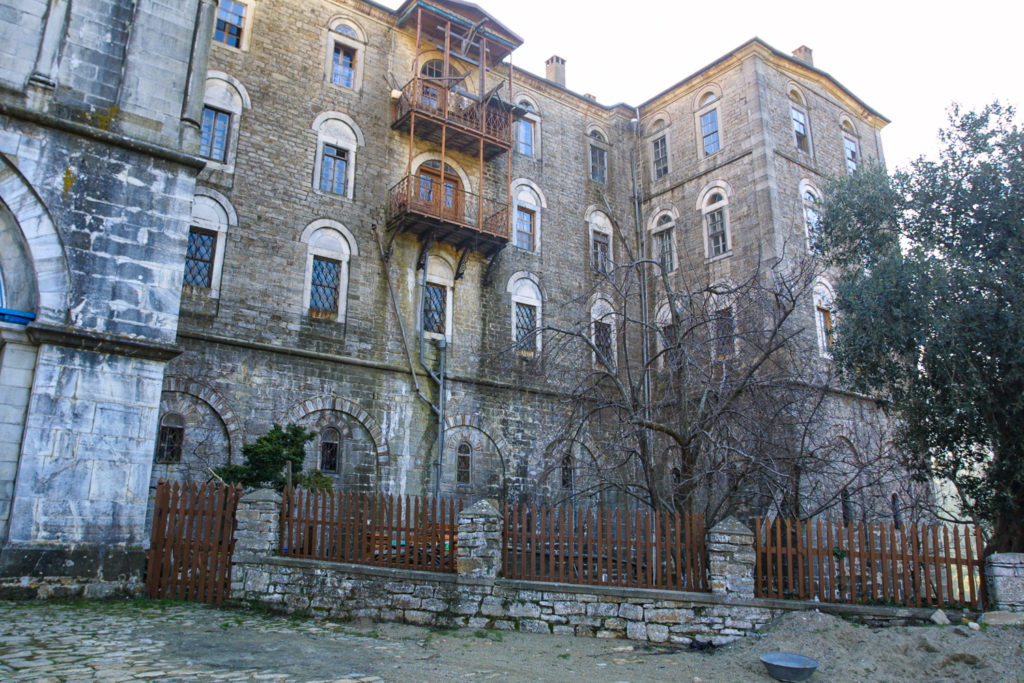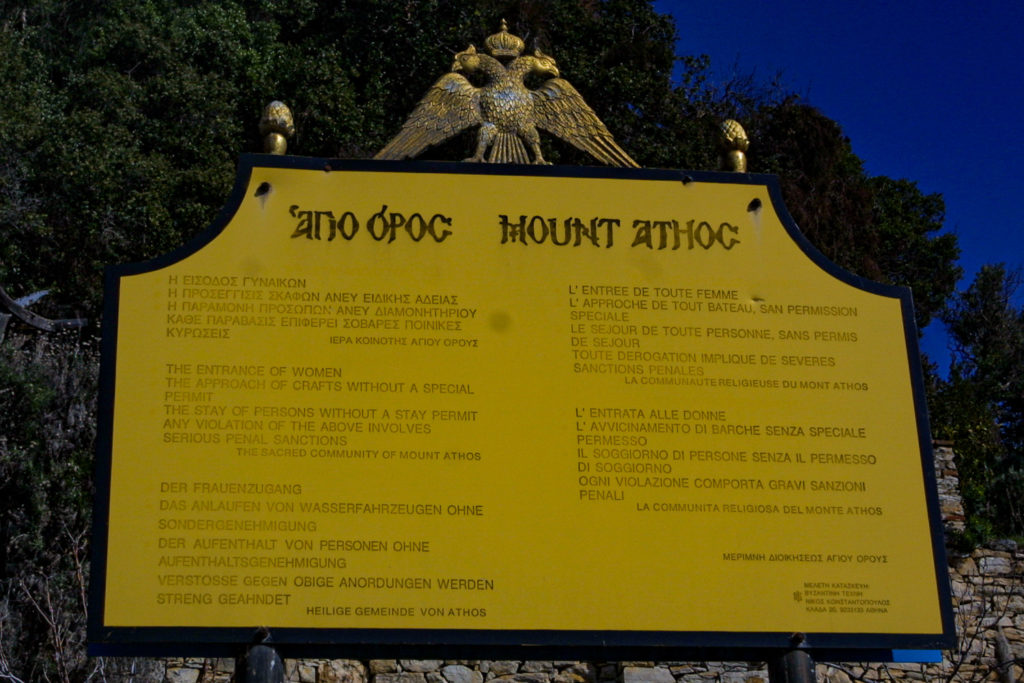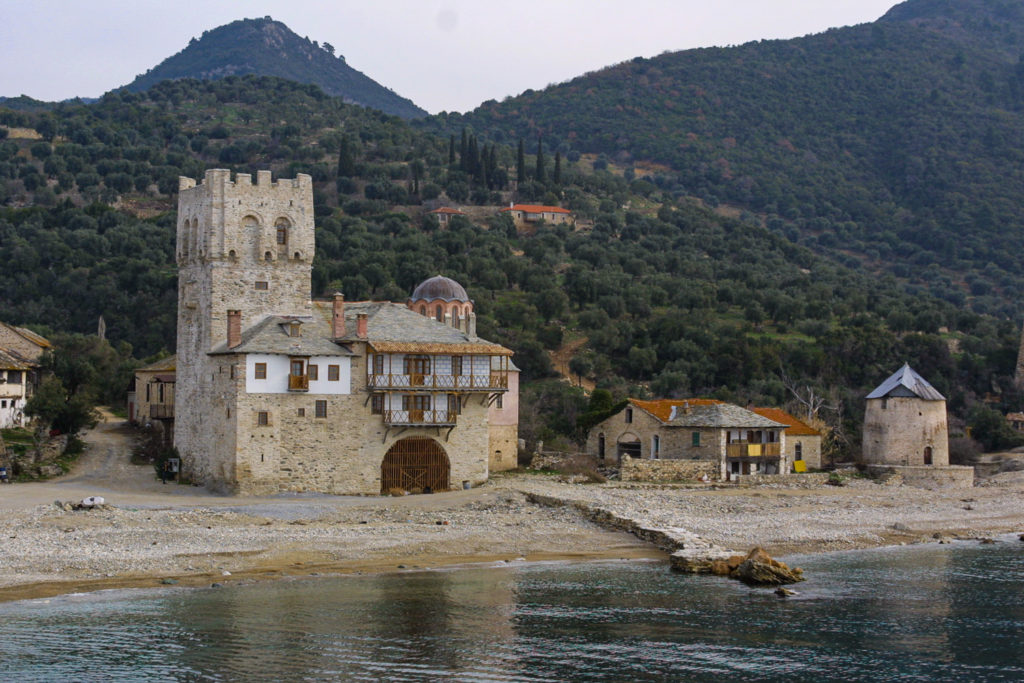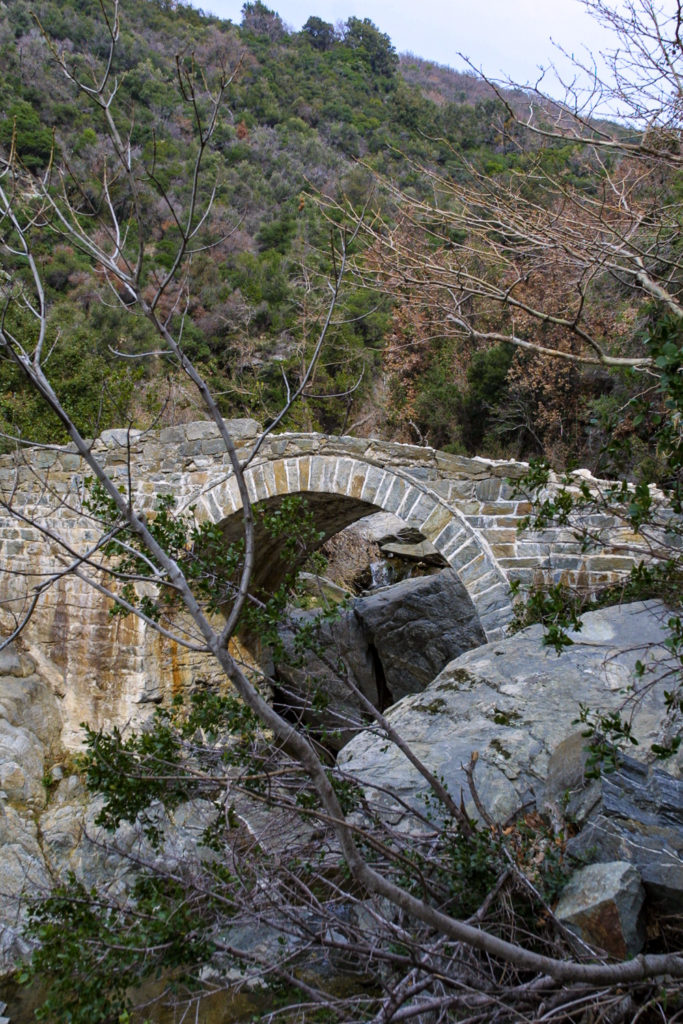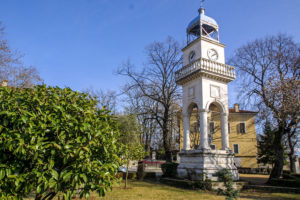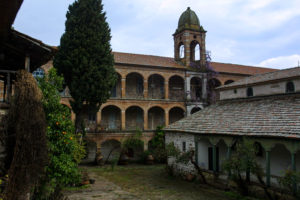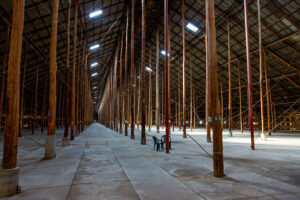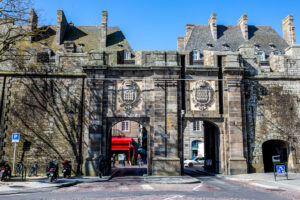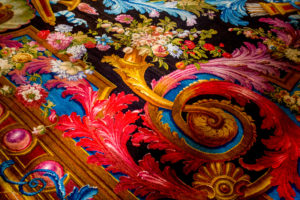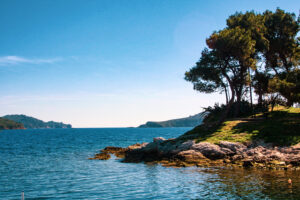
Skiathos, Greece
Skiathos is a small Greek island with some historical significance – it was here in 1807 that the blue and white Greek flag was first flown. The ceremony took place at the Evangelistria Monastery which is about 10 minutes out of town (or around 2 hours if you walk).

